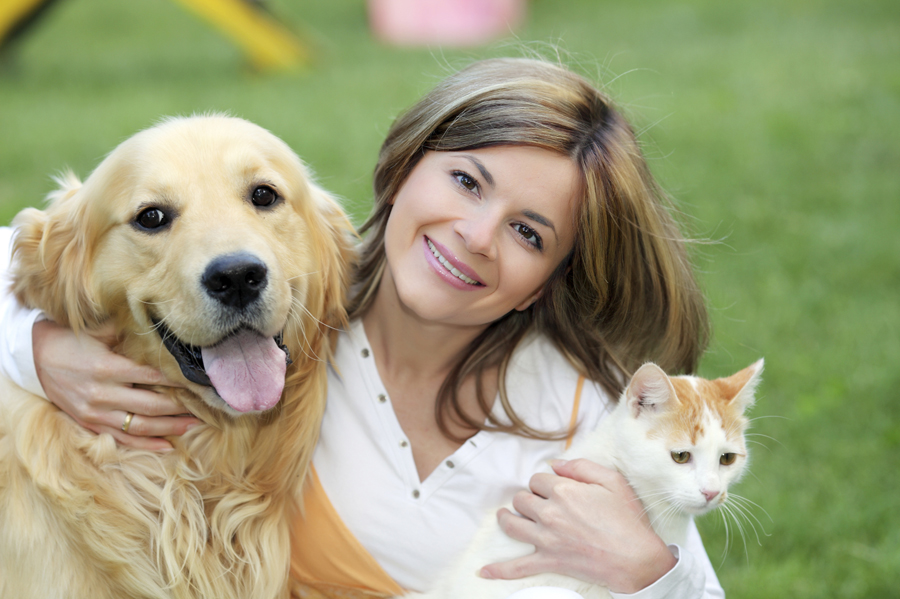
Dogs and cats make wonderful companions, and you may come to think of them as part of the family. Of course, they also require a big commitment and making that adjustment can be a major change for first-time pet owners. A little research and preparation can go a long way toward making this transition easy and happy for both you and your new pet.
Finding Your Fit
Dogs and cats have unique personalities, just like humans, so the first big decision is which set of traits you want in a pet. Are you a dog person or a cat person (or both)? Besides the personality differences between cats and dogs, one of the biggest differences is the level of care they need. Dogs need much more of your time and attention than cats, but with either one, you need to be prepared to sacrifice some time. Another consideration is age. Puppies and kittens require more time and training than full-grown animals. There are also some great advantages to adopting senior animals. Older dogs are usually house trained and have some basic obedience skills, and they’re much less likely to have destructive behaviors like chewing.
If you decide to get a dog, the other major thing to consider is which breed (or mix) fits your situation. Every dog is unique, but bigger dogs typically need more space and exercise. Do you have a fenced-in yard or time to take them on plenty of walks? Do you have the time and energy to keep an active pup happy, or would you prefer a cuddle bug? Cesar’s Way recommends finding a dog whose energy level matches yours. Along with these considerations, don’t overlook the dog’s coat. If you have allergies or don’t have the time for regular grooming, you may want a dog with shorter fur.
Welcoming Fluffy or Fido
Once you meet your match, you want your new furry friend to feel welcome when you bring them home. Your home will be a strange place to them at first, so you should do everything you can to ease the transition and make your pet feel comfortable so you can both start bonding.
- Know Your Pet’s Needs: Beyond the basics like food, water, and walks, each pet is unique and has their own needs. For example, elderly pets have different needs than those who are younger. If you adopt an older animal, they may have health concerns like arthritis, and they may have higher anxiety in a new situation. The shelter or agency you adopt from should be able to give you an idea of your pet’s health and medical needs. An older animal with arthritis may need food and water bowls that are raised to their level, and they need a soft but supportive bed that they can get in and out of easily.
- Make a Plan: If there are several family members who will share responsibility for the pet, Wide Open Pets recommends having a plan so that everyone is on the same page. Part of your pet care plan should also include finding a vet and deciding how you will care for them whenever you’re away.
- Stock Up on Supplies: Before bringing your new fur baby home, make sure you are set up with everything your pet needs. To avoid stomach upset, it’s a good idea to continue using the same food they are used to. Along with pet care necessities like food, bowls, and a quality bed, don’t forget the fun stuff too. Pets also need toys for chewing, chasing and cuddling.
- Pet-Proof Your Home: Pet-proofing your home keeps your dog or cat safe, and it also helps prevent damage. Be especially cautious about keeping anything that could be toxic, such as certain foods and plants, away from your pet’s reach.
When you’re new to the world of pet ownership, it’s easy to underestimate the challenges AND the rewards that come with it. Planning and preparing will minimize the challenges, though, and make the adjustment easier for everyone. Before long, you won’t be able to imagine your life without them!
Source: Jessica Brody